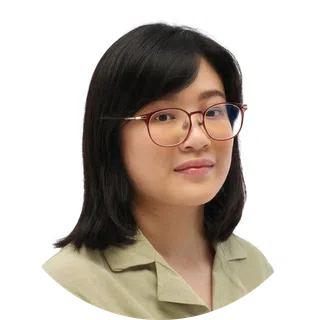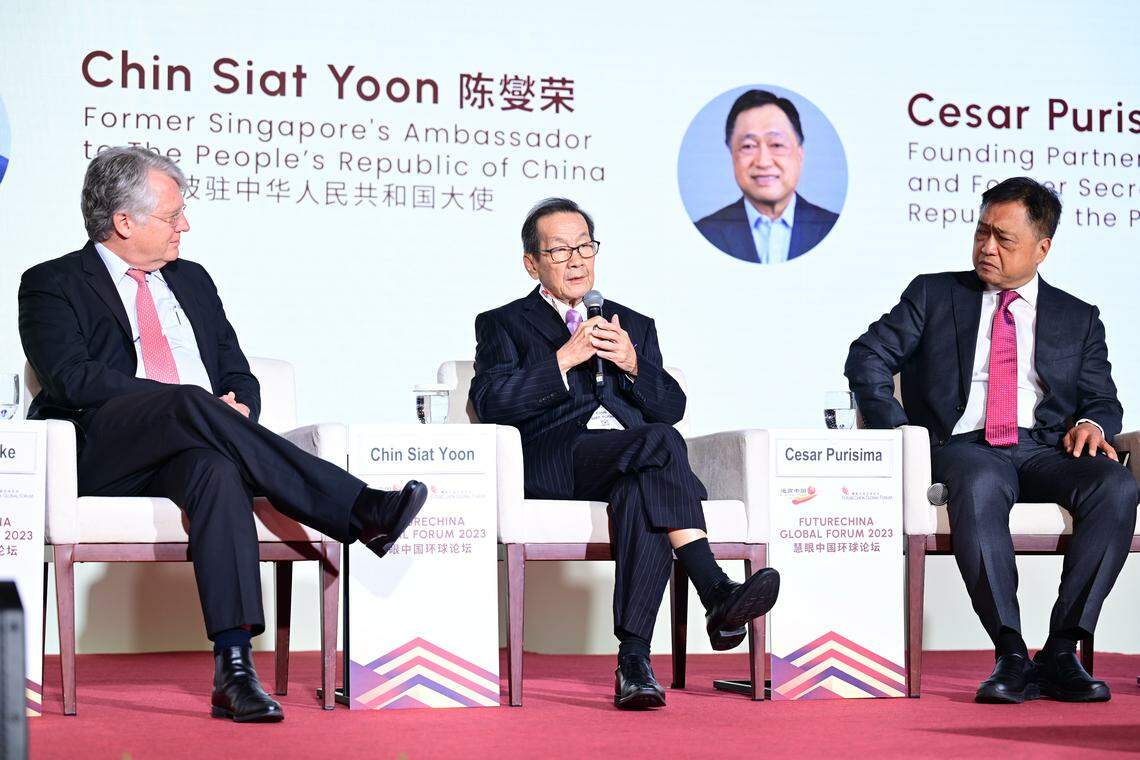US, China must find ways to co-exist despite current ‘trust deficit’: DPM Heng

THERE have been “encouraging signs of thaw” in US-China relations, but it is clear that a trust deficit still persists between the two sides, said Deputy Prime Minister Heng Swee Keat at a conference on Friday (Oct 27).
And while competition between the world’s two largest economies is inevitable, conflict is not, he noted. As the “single most important and consequential bilateral relationship in the world”, both parties must find ways to find common ground and co-exist peacefully.
Heng, who is also coordinating minister for economic policies, was speaking at the opening of the FutureChina Global Forum held at Marina Bay Sands.
He highlighted three priorities for countries to address long-tecm and structural economic and geopolitical challenges.
First, countries must prioritise long-term interests over short-term wins. Second, they must recognise that the most critical future challenges are the ones which require collective action. And third, as countries integrate their economies, they must also undertake structural reforms to deliver a better life to their electorate.
Using US-China as an example of how countries must prioritise long-term interests, he said: “The world cannot afford a great power confrontation, especially when both have nuclear capabilities.”
A NEWSLETTER FOR YOU

Asean Business
Business insights centering on South-east Asia's fast-growing economies.
Heng added: “Many countries around the world, but especially in our region, South-east Asia, want to maintain good ties with both sides.”
Heng, as principal private secretary to Singapore’s founding prime minister Lee Kuan Yew between 1998 and 2001, had followed him on trips to the US and China.
It is thus neither in the US nor China’s interest to be embroiled in conflict, he noted. It is critical that both countries put in place “sufficient guardrails” to ensure that their differences do not escalate into conflict; the onus is also on them to focus on co-operation in areas of long-term common interests.
This was the 14th edition of the FutureChina Global Forum, which saw more than 800 attendees including government officials, business leaders and academics. The day-long event saw sessions on issues such as international trade, artificial intelligence, green energy and cross-border finance, and investment opportunities in China.
At the opening plenary, speakers discussed issues such as the changing international order, Chinese foreign direct investments, and Asean’s role in international relations.

Cesar Purisima, the Philippines’ former secretary of finance, was asked how his country balances its economic cooperation with China with the tensions with Beijing in the South China Sea. He replied that, despite the geopolitical issues, both sides share many common interests. China also is, and will continue to be, the Philippines’ most important market and trade partner.
“It is crucial that the South China Sea is a sea of peace and prosperity, rather than a sea of conflict, because stability and peace are crucial to economic growth,” said Purisima, who is now the founding partner of Ikhlas Capital. He added that Asean could chart a common path for prosperity and peace, and act as a “convenor of great powers”. Therefore, South-east Asia must continue to be a role model for regional cooperation, and maintain its status as a hub of global and regional trade.
Jia Qingguo, the former dean of the School of International Studies at Peking University, predicted that the current international order would remain, but that “fundamental changes” would take place. While this order used to be dominated by the West led by the US, it is being diluted by rising economies such as China and India.
The ability of the West to uphold its view of an international order, focused on civil and political rights, is diminishing for a more “secular view”, which prioritises “pragmatic values” such as sovereignty and integrity, he explained. These shifts are partly the reason for the geopolitical challenges seen today, especially in the confrontation between China and the US, he added. “But over time, they have to face the reality and find some way to peaceful co-existence.”
KEYWORDS IN THIS ARTICLE
BT is now on Telegram!
For daily updates on weekdays and specially selected content for the weekend. Subscribe to t.me/BizTimes
Singapore
Daily Debrief: What Happened Today (May 2)
US-China competition is not worrying, lack of communication is: Gan Kim Yong
Chee Hong Tat to join MAS board of directors
Singapore keen on ‘talent exchange’, developing AI ‘guardrails’ with the US
Social cohesion, long-term planning, political stability are imperatives for Singapore: PM Lee
As airports expand, Singapore SMEs can tap opportunities
